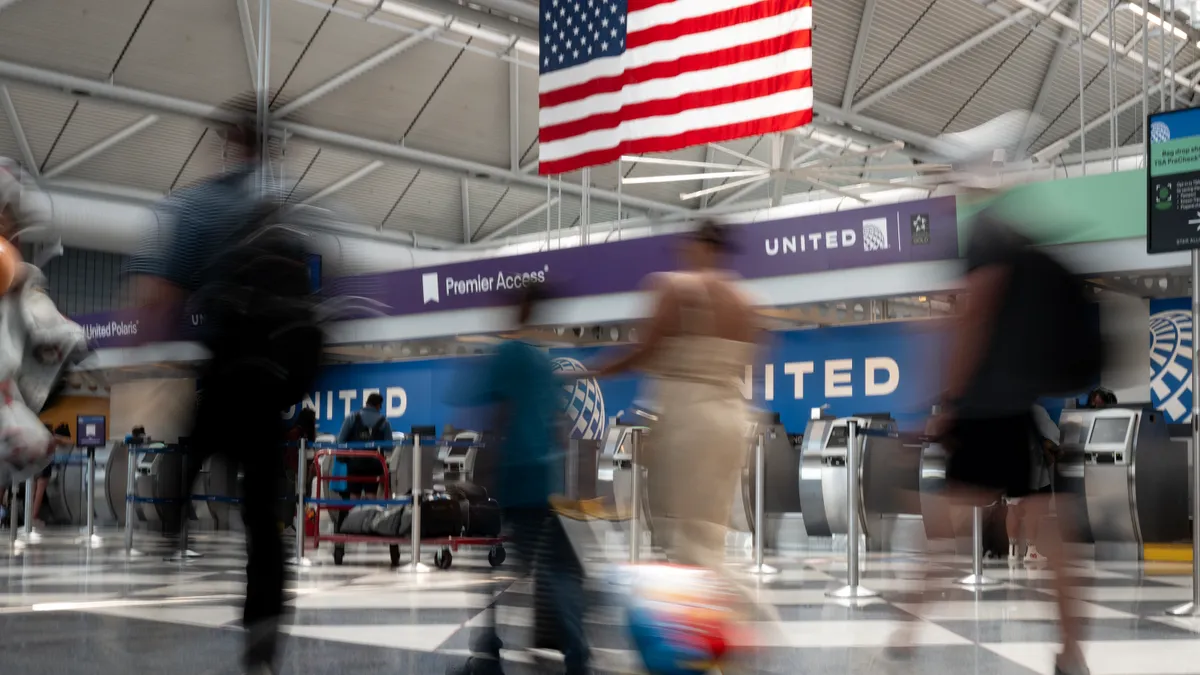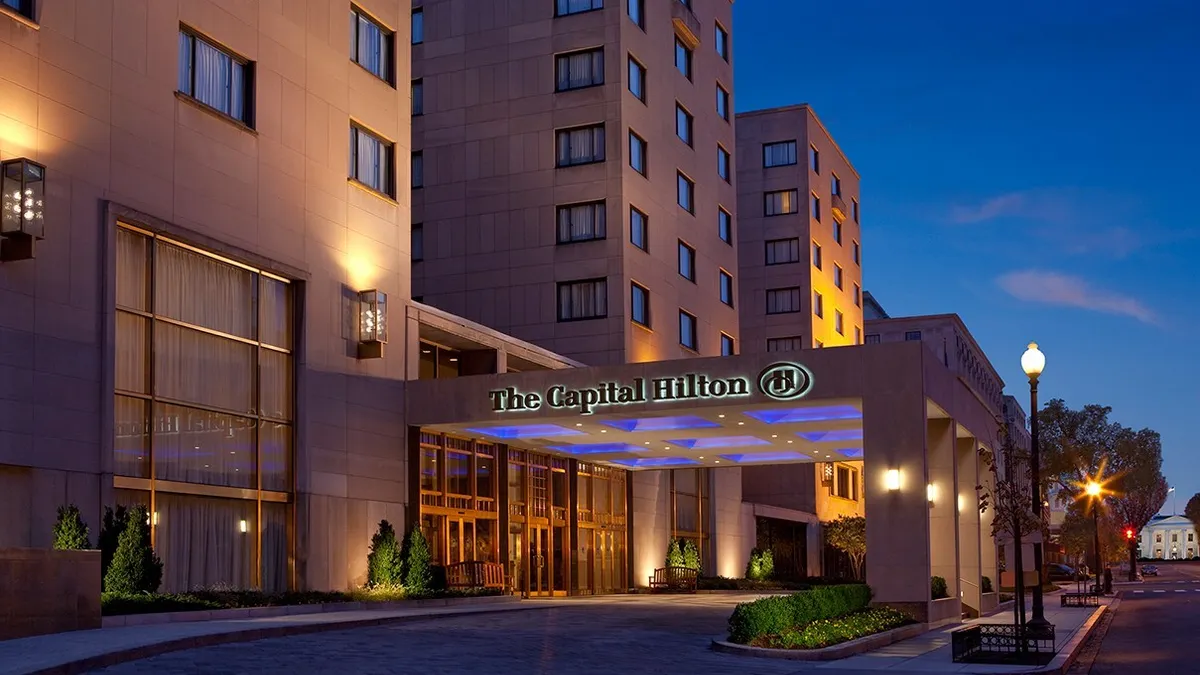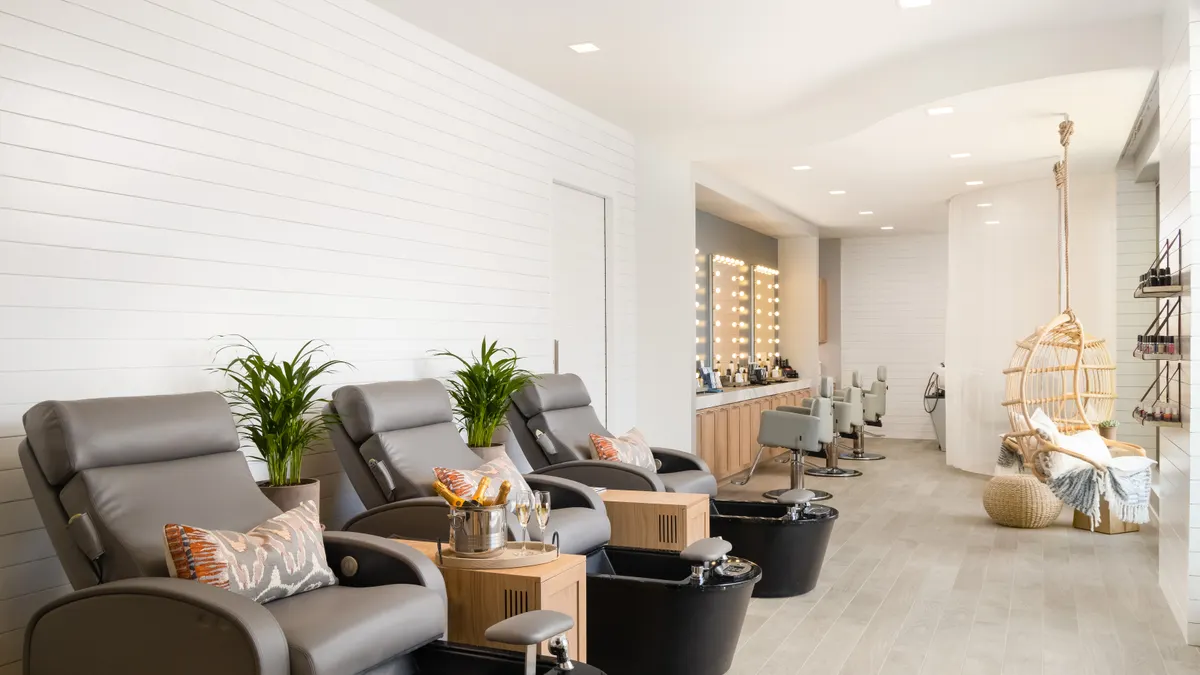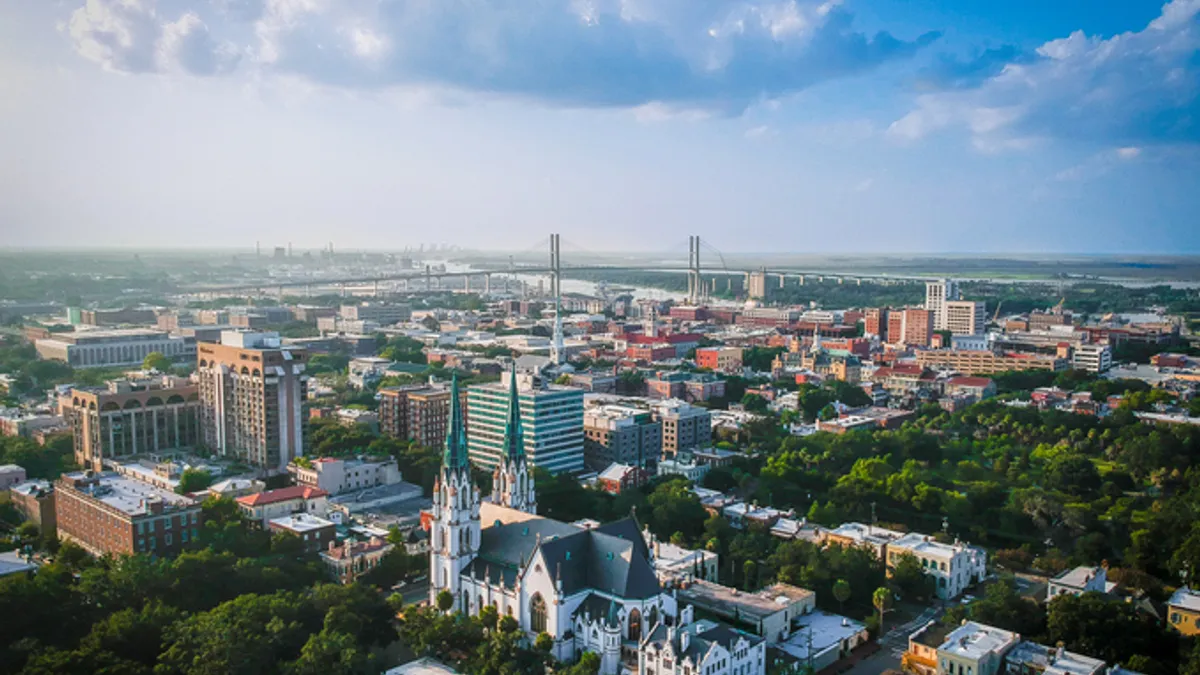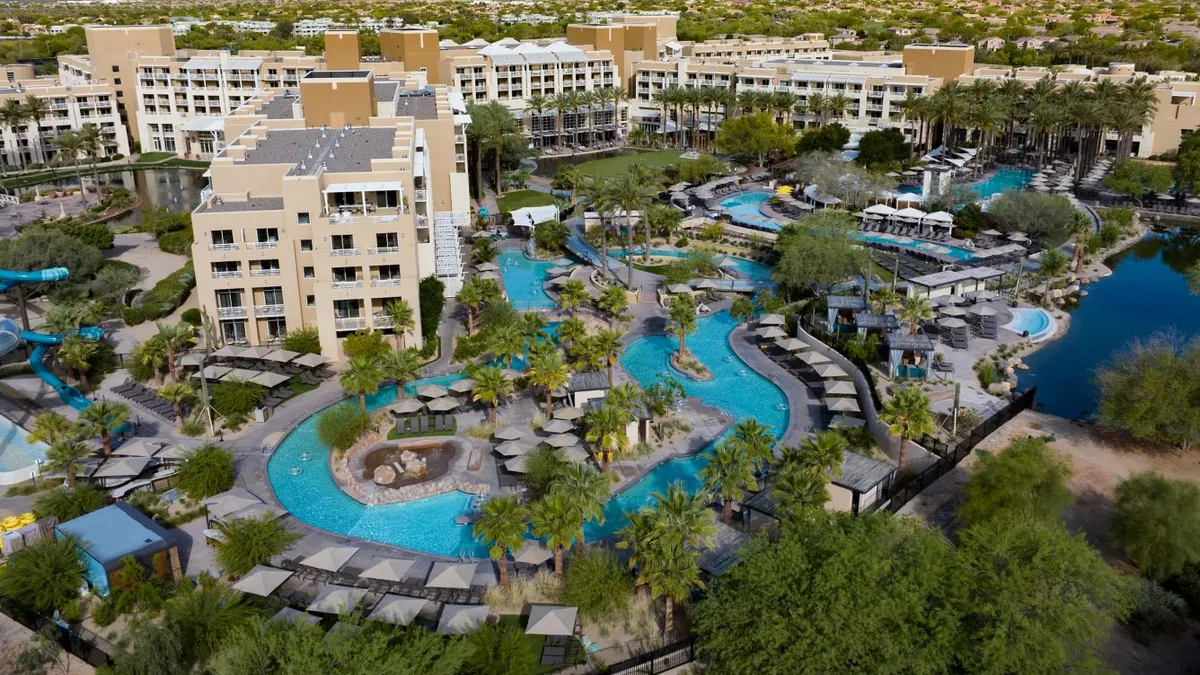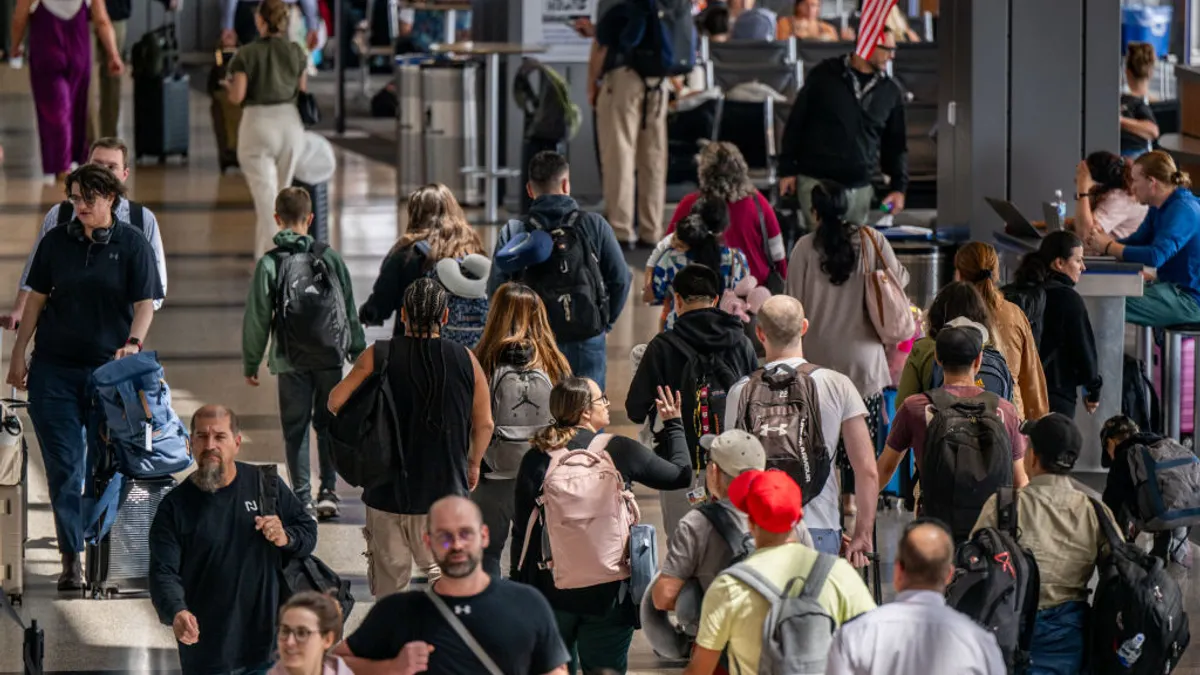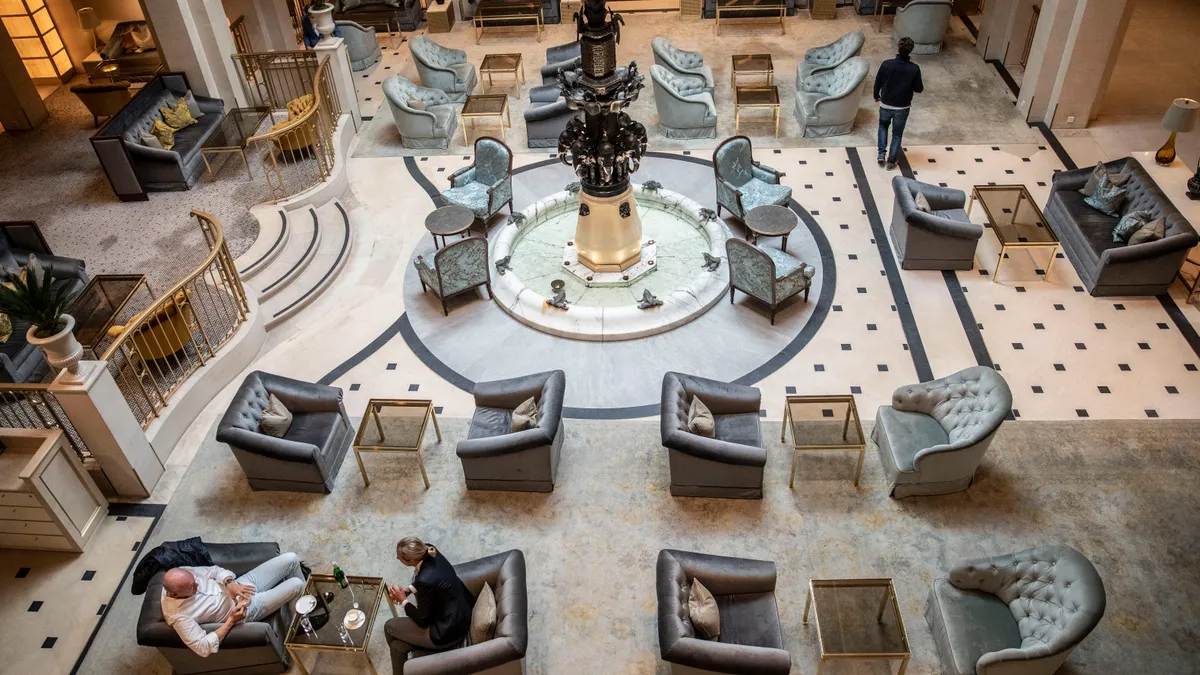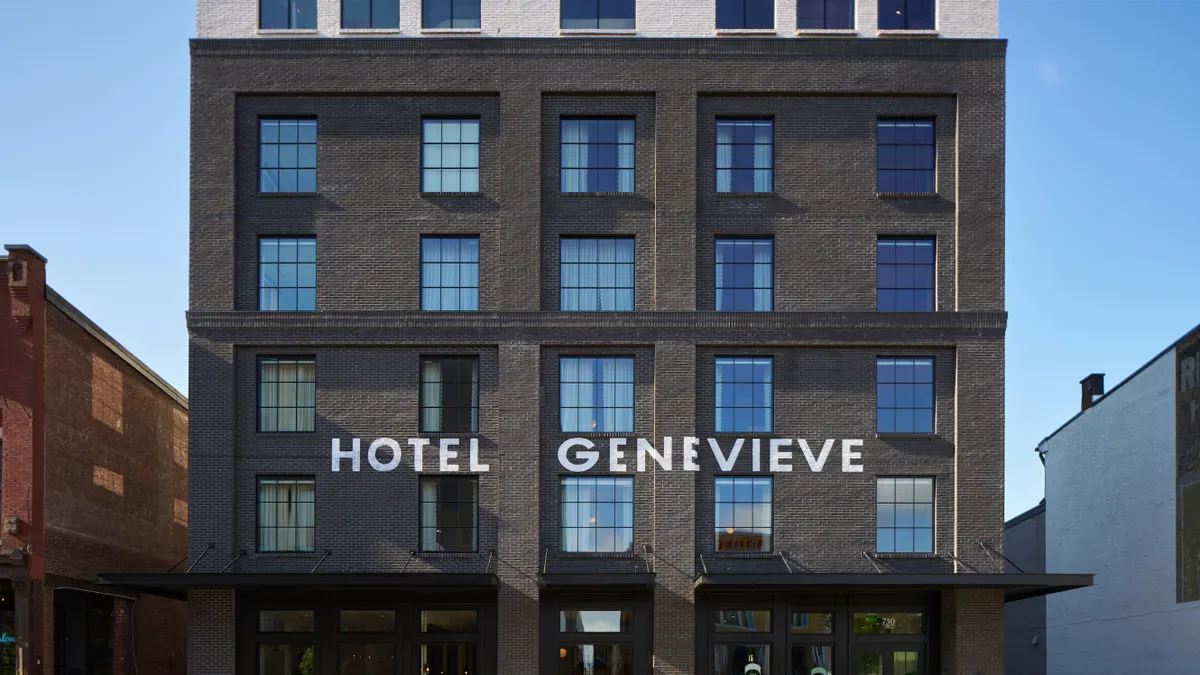Just days after the close of the first quarter of 2025, President Donald Trump announced sweeping global tariffs that quickly destabilized U.S. markets.
The trade policy move, alongside other political actions during Trump’s first 100 days in office, are slated to have near-term downward impacts on consumer confidence and purchasing power. For hotels, this could mean fewer guests and, in turn, weakened revenues in the months ahead.
During Q1 earnings calls, multiple hotel companies downgraded their RevPAR guidance for the remainder of 2025, with CEOs sharing concerns over worsening travel fundamentals and booking trends. Chief executives were optimistic, though, noting the resilience of the hospitality industry.
Rocky RevPAR growth
Marriott International, Hyatt Hotels, Choice Hotels International and Wyndham Hotels & Resorts all downgraded their RevRAR growth expectations for 2025 in their Q1 earnings reports, with the CEOs of each company citing ongoing economic uncertainty.
“Look, it’s obviously a choppy environment,” Hyatt CEO Mark Hoplamazian said during a May 1 earnings call, pointing to “growing volatility in the economy and financial markets.” Hyatt lowered its RevRAR guidance to a 1% to 3% growth range from its previously forecast 2% to 4% range.
Marriott, meanwhile, lowered its RevPAR growth outlook to a 1.5% to 3.5% range from its previously forecast 2% to 4% range. During a May 6 earnings call, Marriott CEO Anthony Capuano acknowledged heightened market volatility, but noted a recession was not imminent.
Wyndham CEO Geoff Ballotti, though, indicated the company is preparing for “periods of economic downturn,” assuring shareholders during a May 1 call that Wyndham’s brands have historically outperformed during economic slumps, including the period following Sept. 11, 2001, the 2008 financial crisis and the COVID-19 pandemic. Wyndham now anticipates 2025 RevRAR growth in the range of -2% to 1%, down from its previous estimate of 2% to 3% growth.
Choice CEO Patrick Pacious made a similar remark during Choice’s Q1 earnings call. “[I]n periods of economic uncertainty, our differentiated positioning has enabled us to outperform our peers, gain market share and emerge stronger,” Pacious said.
Choice downgraded its 2025 RevPAR expectations to a -1% to 1% range, down from its previously forecast 1% to 2% growth.
Travel turbulence
Choice will benefit from its extended stay portfolio, though, if economic conditions worsen, Pacious noted. Choice has “established brands with significant growth potential in the two segments with the highest developer and guest demand: extended stay and upscale limited service,” he said during a May 8 call.
Similarly, Wyndham’s Ballotti said the company’s limited reliance on white collar corporate and group travel — “which tends to contract most during economic downturns” — will bode well for Wyndham.
Both business and leisure travel could be negatively impacted by ongoing economic uncertainty, according to Deloitte. Additionally, a significant number of global travel industry professionals anticipate declines in business travel this year as a result of recent tariffs and other U.S. government actions, according to Global Business Travel Association findings released last month.
Choice saw strong business travel demand in Q1, though, with its business travel segment up 10% year over year, Pacious shared.
Hilton noted that leisure travel had been impacted more than business. “We believe travelers are largely in a wait-and-see mode as the rapidly changing macro environment continues to unfold,” CEO Chris Nassetta shared during an April 29 call.
Hyatt, meanwhile, saw a shift in booking behavior to start the year, including “significant cancellations” in government group bookings, Hoplamazian shared.
In Las Vegas, Caesars Entertainment and MGM Resorts International reported seeing fewer Canadian leisure travelers during Q1.
Optimism prevails
Despite ongoing economic turmoil, hotel CEOs remained optimistic about the year ahead.
Hilton’s Nassetta said the impact of economic uncertainty would likely be minimal going forward. Marriott’s Capuano, meanwhile, said that owners and developers remain bullish on long-term growth opportunities in the hotel sector and are “not necessarily getting spooked by some of this short-term turbulence.”
IHG Hotels & Resorts CEO Elie Maalouf shared that “attractive long-term structural growth drivers for both demand and supply remain unaltered for the travel industry and for IHG in particular,” during a May 8 earnings call.
CEOs for Caesars and MGM said they remain confident that luxury demand will drive performance growth for them for the remainder of 2025. Las Vegas competitor Wynn Resorts reported that RevPAR and demand fundamentals in Sin City appear solid, though the operator halted $375 million worth of capital expenditures following Trump’s April tariffs.



